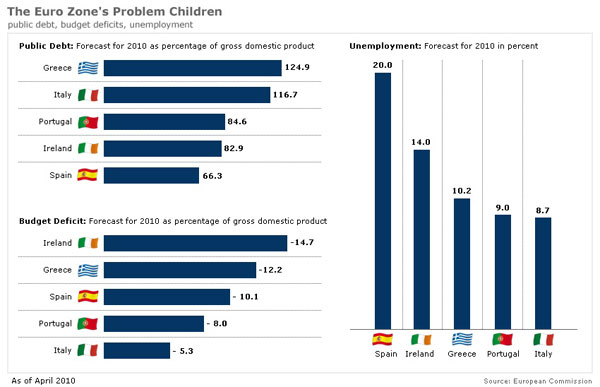In the words of Duncan Sheik and Steven Sater through the mouth of Melchior Gabor in the musical “Spring Awakening“:-
There’s a moment you know…you’re fucked,
Not an inch more room to self-destruct,
No more move – oh yeah, the dead-end zone,
Man, you just can’t call your soul your own.
But the thing that makes you really jump,
Is that the weirdest shit is still to come.
You can ask yourself: “Hey, what have I done?”
You’re just a fly – the little guys, they kill for fun.
Following weeks of barefaced deceit and dithering, Taoiseach Brian Cowen confirmed tonight that the European Union has approved a formal request by the Government for a financial aid package from the European Union and the International Monetary Fund.
European finance ministers held an emergency conference meeting tonight to consider this request for aid, which was forwarded following a Cabinet meeting in Dublin.
Speaking at a press conference tonight, held in Government Buildings in Dublin, together with Finance Minister Brian Lenihan , the Taoiseach stated that the European authorities had agreed to the request and he expected that the agreement would be finalised shortly. He confirmed the rescue package, would run for three years and would be tied to a restructuring of the banks and a deficit reduction plan.
The amount of funding being applied for will be decided during further negotiations, but is expected to as much as €80 billion.
The fear, shame and uncertainity whirling around our little nation this last week has been painful, falling, as we have, from the dizzy heights of apparent economic success to being an embarrassing liability, bereft of any quality leadership.
Text of Government Statement on Aid Application
The Government today agreed to request financial support from the European Union and the Euro Area Members States. The IMF will also be requested to assist in the provision of support.
The Government welcomes the agreement reached at the Eurogroup meeting today that providing assistance to Ireland is warranted to safeguard financial stability in the EU and in the Euro Area.
In the context of a joint programme EU/IMF, the financial assistance package to the Irish state should be financed from the European financial stabilisation mechanism (EFSM) and the European financial stability facility (EFSF), possibly supplemented by bilateral loans to be negotiated by EU Member States.
EU and euro-area financial support will be provided under a strong policy programme which will be negotiated with the Irish authorities by the Commission and the IMF, in liaison with the ECB.
The programme will address the budgetary challenges of the Irish economy in a decisive manner on the basis of the ambitious budgetary adjustment and comprehensive structural reforms that will be contained in the Government’s Four Year Budgetary Strategy. Given the underlying strengths of the Irish economy, decisive implementation of the programme should allow a return to a robust and sustainable growth, safeguarding the economic and social position of the people of Ireland.
A central element of the programme will also be to support further deep restructuring and the restoration of the long-term viability and financial health of the Irish banking system. It will build on the extensive measures taken by Ireland to strengthen its banking sector, via guarantees, recapitalisation and asset segregation. These measures have helped to maintain financial stability of the Irish banking sector at a time the both the banking system and the Irish economy have confronted significant challenges reflecting both domestic and international factors.
The programme will address the potential future capital needs of the banking sector. By building on the measures already taken by Ireland to address stress in its banking sector, a comprehensive range of measures – including deleveraging and restructuring of the banking sector – will contribute to ensuring that the banking system performs its role in the functioning of the economy.
Since the last Eurogroup meeting on the 16th November there has been very constructive and positive engagement and dialogue between the Irish authorities and the Commission, the ECB and the IMF in order to determine the best way to provide necessary support to address continuing market risks, especially as regard the banking system, in the context of the four-year budgetary plan and the upcoming budget.
IMF involvement is now being welcomed by the Irish people because voters believe that under its intervention they may get a fair crack of the whip. Although we are essentially a colony, the electorate now believe that the IMF may lead a reform of our vested and public sector interests, sparking a return to growth.


Leave a Reply